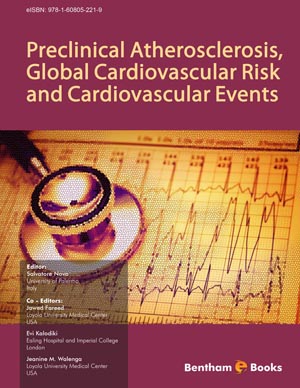Abstract
The risk of CV events in patients with preclinical ATS is higher than in the controls. The carotid asymptomatic lesions predict both cerebral and extra-cerebral events and are thus an expression of multifocal ATS. Furthermore, specific carotid levels (ACC, ACI and bifurcation) correlate to the risk of myocardial infarction and stroke. The coexistence of IMT both in the external and internal carotid arteries triggers the prevalence of CV events even higher. Last but not the least, IMT seems to predict the worse prognosis in patients with acute coronary syndrome undergoing percutaneous procedures. An ABI <0.9 and a reduced FMD are independently related in the long term with a higher risk of major CVE (myocardial infarction, unstable angina, sudden cardiac death, and revascularization). The calcium score provides an accurate estimation of ATS and is currently considered as a powerful predictor of major CVE and death in asymptomatic patients.
Keywords: Preclinical atherosclerosis, cardiovascular and cerebrovascular events, clinical and epidemiological studies.






















